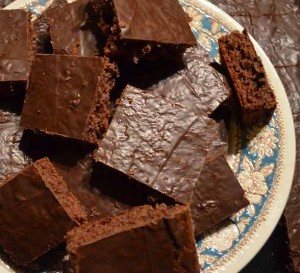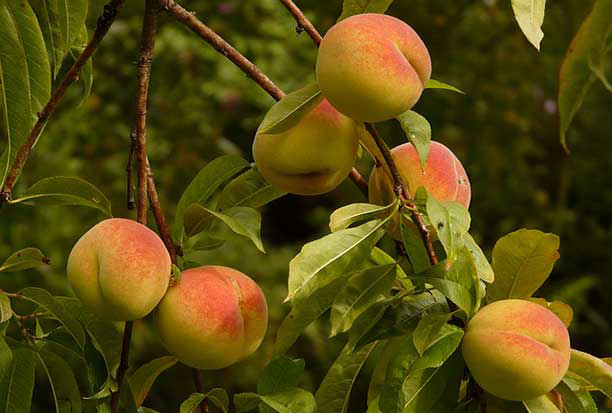This is the second post in the Mindful Eating series. To view other posts, please visit:
(1) Learning to Eat Mindfully
(2) Thinking about Food
(3) Choosing the Foods We Eat
(4) Cooking with Awareness
(5) Serving Food Thoughtfully
(6) Preparing to Eat
(7) Experiencing the Meal
(8) Cleaning with Intention
(9) Conclusion
How do you think about food? Do you see a miracle in a cucumber? The whole Earth in a peach? Do you see preparing food as a loving way to nourish yourself and others? Do you choose the foods you eat carefully, knowing they will become a part of you? When you look at an acorn squash, do you see the farmer who planted it? The rain and the sunshine that helped it to grow? The tired worker who harvested it? The driver of the truck who traveled through storms to deliver it to your town? The young produce clerk who set it so tenderly on the supermarket shelf? Do you see other humans around the world and around the corner who don’t have enough nutritious food to eat?
 In Western societies, we have lost this deep connection to the foods we consume. We no longer gather and hunt, and we rarely grow our own fruits and vegetables. We do not even know our farmers. We simply step into a grocery store and grab whatever looks most appetizing at the moment – foods in sterile plastic packages, boxes and cans, foods processed until they have no life left in them. We forget that food connects us as humans, as living beings, and that the foods we choose to eat impact our bodies and minds, our families, other sentient beings (both humans and animals), and our Earth.
In Western societies, we have lost this deep connection to the foods we consume. We no longer gather and hunt, and we rarely grow our own fruits and vegetables. We do not even know our farmers. We simply step into a grocery store and grab whatever looks most appetizing at the moment – foods in sterile plastic packages, boxes and cans, foods processed until they have no life left in them. We forget that food connects us as humans, as living beings, and that the foods we choose to eat impact our bodies and minds, our families, other sentient beings (both humans and animals), and our Earth.
We forget these things, and instead we think about the taste, the cost, the ease of preparation. We consider whether something is a “bad” food or a “good” food, a “junk food” or a “health food.” We want to know whether it will put weight on us or take it off, whether the taste will be worth the trouble of cooking it or driving across town to the restaurant, whether it will make up for the crummy day we had at the office or will help us forget the awful thing we said to our partner that morning.
This is not how we should think about food, though it is how nearly everyone in this Western culture does. It is how I once did, and it may be how you think of food, too.
No food is inherently good or bad. Unfortunately, sometimes, the ways in which humans alter or process a food causes it to hurt our bodies and our minds, or hurt our planet, or cause suffering – to other humans, to animals, to ourselves – and because of this should be avoided, but the food, itself, is neither good, nor bad; it is simply food.
 When we are sad or anxious, stressed or ashamed, so often we turn to food. We buy chocolate or we bake cookies or we open a bag of chips. We eat food instead of facing our emotions. We chew the sadness and worry, the stress of our projects, the shame of our past. We don’t chew the food. We hardly notice the aroma, the texture, the taste. We hardly look at the food as we put it into our mouths.
When we are sad or anxious, stressed or ashamed, so often we turn to food. We buy chocolate or we bake cookies or we open a bag of chips. We eat food instead of facing our emotions. We chew the sadness and worry, the stress of our projects, the shame of our past. We don’t chew the food. We hardly notice the aroma, the texture, the taste. We hardly look at the food as we put it into our mouths.
But food will never help us to understand ourselves. Food will never transform our negative emotions into positive ones. Only we can do that, and only by looking at our thoughts and feelings without judgment or expectation. Eating covers up these thoughts and feelings and makes the process so much more difficult.
Instead of thinking of food as a way to assuage negative feelings or as a reward for a job well done, look more deeply into your food, and recognize that it connects you to all living beings – to the farmer who planted and watered the seed, to the migrant farmworker who harvested it, to the oilfield workers who helped to provide the gasoline it took to bring the food to you, to the factory worker who helped construct the box it was packed in, to the stocker at the supermarket who unloaded it from the truck, to other humans who, just like you, must eat in order to live and thrive and work and play, to so many people who do not have enough to eat and experience hunger and malnourishment, to animals who may have suffered to provide this meal on your plate….

Think of the soil, the rain, the fresh air, the sunshine that nourished the seed as it grew. The entire cosmos has come together so that you can bite into this juicy plum, this square of chocolate, this crisp and spicy onion.
This food will become a part of you. It will nourish every cell in your body. If it is heavy with suffering, you will be nourished with suffering. If it has been grown with love and care, you will be nourished with love and care.
Eat with the intention of caring for yourself. When you care for yourself, you do not want to harm yourself in any way. You choose foods that will nourish and energize you. You do not allow chemicals or foods that can harm you into your body. You nourish yourself with goodness, not suffering. You eat with kindness and compassion toward all living beings, including yourself.
How do you think about food? When you sit down to eat a meal, do you feel a connection to all living beings?

Hello, I enjoyed your Blog article: Mindful Eating : Thinking about Food. I am a coach practicing from my training at the Institute of the Psychology of Eating (IPE) where we learned and practice many similar insights from Dynamic Eating Psychology and Mind Body Nutrition. The philosophy and practice sounds very similar to mine. I was wondering if you have a Facebook page? When I clicked the link to “like” you there, it gave me a NOT FOUND message. …Cheers, Leslie
Thanks, Leslie! Looks like I have a link to fix! I *do* have a Facebook page. It’s https://www.facebook.com/LiveSimplyBook. And, I’m actually very familiar with IPE and Marc David. He’s a hero of mine.